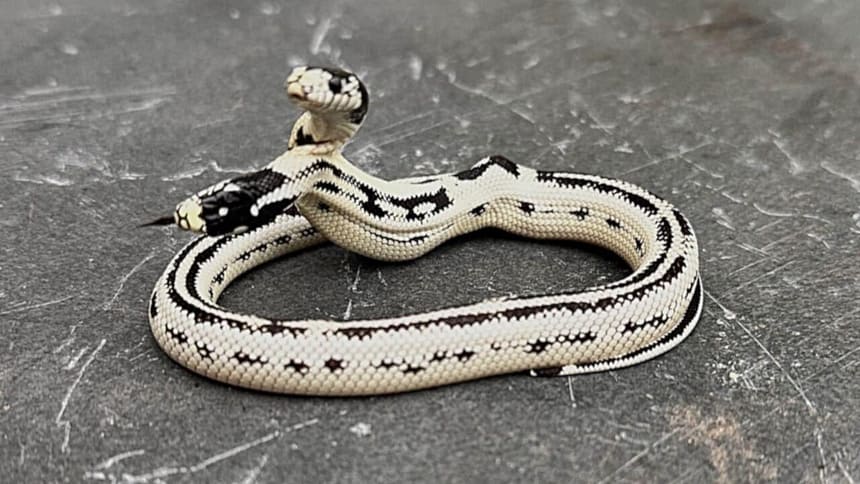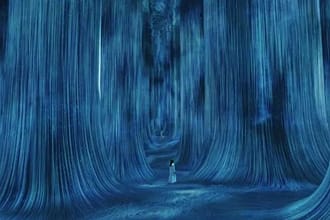Meet Angel. Also, meet Zeke. They’re two of a kind. Angel and Zeke are the two heads of a single California kingsnake living at the East Bay Vivarium, a reptile store in Berkeley, California.
Angel/Zeke (named after two store employees) is around seven months old, a remarkable age for a snake with its rare mutation. Bicephalic (two-headed) snakes typically don’t live long. The Vivarium’s unusual reptile doesn’t move as quickly or as gracefully as a one-headed kingsnake.
Enlarge Image
The larger right head of this kingsnake is the only one eating at this time.
Reptile lovers know the animals can have a lot of personality. Most kingsnakes are quick to poop on you or run, the Vivarium’s Alex Blanchard told CNET.
He described the two-headed snake as “chill.”
“They’re not shy. They’re not bitey,” he said. “They’re pretty calm for a kingsnake.”
The kingsnake’s right head appears to be dominant. It’s the only one accepting food, but that could change as the snake matures. For now, Angel/Zeke is eating every week.
“It’d eat more if we let it, but it’s doing pretty well,” Blanchard said.
California kingsnakes aren’t venomous. They’re native to California and can be found in urban areas as well as in grasslands and desert or forest landscapes. Kingsnake coloration can vary, but they typically have dark and light bands. Angel/Zeke is what’s known as a “morph,” a snake with a distinctive pattern.
Angel/Zeke is not currently for sale, though Blanchard said there have been some casual inquiries. Visitors to the East Bay Vivarium can see the snake in person, but it has access to a hideaway area for when it’s not feeling social.
The East Bay Vivarium shared photos of the snake on Instagram in late March. Vivarium staff were surprised at the attention the snake has generated.
“We’re hoping that people coming to see the snake will learn about other animals and other species and it’ll open their eyes to a wider view of reptiles in both captivity and in the wild,” Blanchard said.





